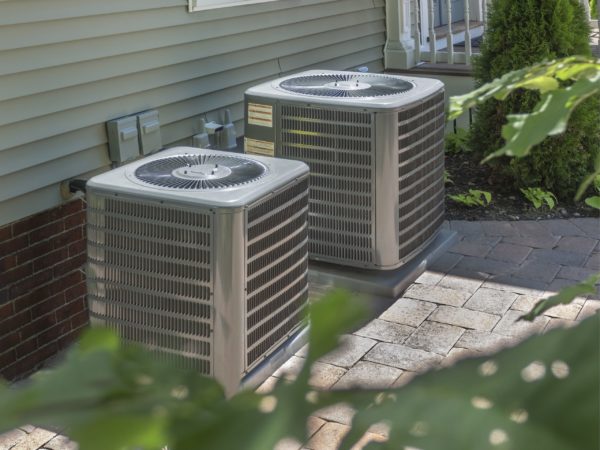With summer here, your air conditioner is probably seeing a lot of use. Sadly, some ACs are noisier than others, whether it’s due to the internal components of your AC unit itself or issues with your home’s ductwork. Luckily, there are a few ways to soundproof your home’s air conditioning system, from sound-absorbing materials to sound barriers and more. Read on to learn about some ways you can reduce the noise coming from your air conditioner.
Fix or Replace Your Air Conditioner
Probably the easiest way to reduce the amount of noise your air conditioner makes is to have it professionally serviced. While most newer ACs are relatively quiet compared to older ones, strange or annoying sounds can be caused by issues with your unit’s components. Hire a professional to inspect your HVAC and fix any issues that are present to make sure they’re not the source of the sounds. If you’re finding yourself calling the repairman more and more often, it might be time to get an entirely new air conditioner, which won’t just reduce the amount of noise in your home, but also probably help you save a bit on your energy bills.
Use Sound-Absorbent Materials
Sound-absorbent materials, like high-density carpet and acoustic ceiling tiles, are intended to dampen sound so it doesn’t resonate as much throughout an area without them. These won’t soundproof your air conditioner itself, but they’ll help prevent the noise from entering your home, leading to quieter surroundings.
Installing sound soffits around your home is another great way to reduce noise from your HVAC system. Sound soffits are a layer of wood that helps absorb and dampen any unwanted noise before it becomes a problem. They’re easy to install, and you can get them in various colors, so if you’re looking for ways to soundproof HVAC air vents, this is one option.
Invest in Sound Barriers
Sound barriers can provide an added layer of protection against noise in your home, especially ones placed between the outside and HVAC vents. Sound barriers are usually made from insulation materials such as drywall, acoustic drywall, and soundproofing insulation.
Create Sound Baffles
Creating sound baffles in your home is a simple and inexpensive way to reduce noise from your HVAC system. Sound baffles are typically used to eliminate rattling noises by creating obstacles between the HVAC system and its room. These baffles prevent noise that comes through the ventilation system from traveling into the room. The best way to install a sound barrier is to contact a professional to do it for you.
Look For Soundproofing Blankets
It may sound strange, but you can actually buy blankets made specifically for soundproofing your air conditioner. They’re intended to be placed inside of your AC unit itself and will help dampen sounds to keep them within the unit; blankets like this can also reduce the amount of vibration the air conditioner creates as it runs, lessening the sound it makes. As an added bonus, they often help with insulation, so you might see better energy efficiency, too. Make sure you use a blanket that’s intended for this purpose, though, as putting any spare blanket into your air conditioner can cause problems.
Insulate Your Ducts and Consider Liners
Air leaks surrounding the HVAC vents can create a disruptive noise within your home. Insulate all of the air vents in your home to reduce noise. The type of insulation used will depend on each air vent’s size, thickness, and location. In addition, you need to ensure that the insulation materials are approved for use with your HVAC system.
Duct liners are a cost-effective way to protect your ducts and reduce noise with your HVAC system. Duct liners cover your present ducts to keep them free from outside debris and moisture. This will improve the efficiency of the system, and it will also protect the sensitive inner workings of the HVAC system from harm.
Get Your Ductwork Inspected
Along with insulating your ductwork, it’s a good idea to have it inspected. Air escaping from leaks in your ductwork can contribute to noise, for one. Ductwork that’s loose, too, may rattle or vibrate more than it should; simply making sure it’s fastened properly can go a long way in soundproofing your air conditioning system.
Call a Professional
Always consult a professional when choosing the best way to soundproof your air conditioner — you don’t want to stumble onto a “solution” that leads to bigger AC issues down the road. Be sure all materials have been approved for use with your HVAC system. Have a backup plan if your chosen solution doesn’t work. At North Point Air Conditioning & Heating, we have technicians who can help you with your needs. We service both cooling and heating services, as well as insulation and indoor air quality in Spring. Our experienced technicians will assess the noise levels in your home and devise a solution to reduce the amount of noise coming from your HVAC system. Contact us today to see what we can do to protect your health and investment.


